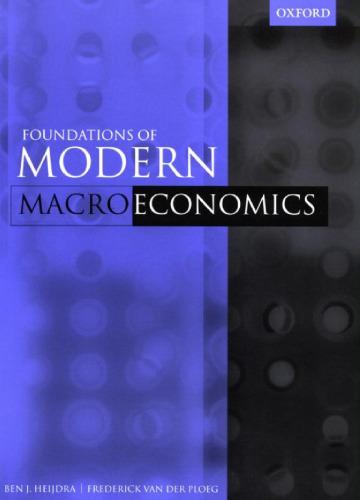The relative size of government spending in the cooperative and non-cooperative scenario's can be judged by comparing
Question:
The relative size of government spending in the cooperative and non-cooperative scenario's can be judged by comparing (11.60) and (11.64). If there is nominal wage rigidity in both cc the higher spending it where point C designatL:
is obvious. With nomina locomotive policy. In the not take into account tha therefore both undere'
choose spending levels t hand, this external eft- , use of the locomotive IL.
The opposite holds if t is illustrated in Figure 11.
and uncoordinated actioi too high. The coordin..
of government spenu... 6 Up to this point we hi or real wage rigidity in where there is real wag(
wage rigidity in the for.
a: .d 0 < r < 1. Followl.., it is possible to derive the
(1 + 0 -
(1 + 9 — r).1
= (1 + 0)2 -“*
so that:
(1 +
gc- = [ 1 + 0 +
From (11.65) we can con under the symmL and (11.60). Furthermore
* it gN < gc and Ar. >
4.:erest rate is too hibri In Europe due to the eci s_..ce fiscal policy is a I spends too much in the 2
which yields the first-order conditions:
a(LG +q)
=ag (g + —P+) r (g* + — + og = o, a(LG + L'O
(11.62)
(11.63)
gN = (1 + — (c.
gc — gN = r + 0 +
[1 294 RR*
9sCal
, tries
,
Step by Step Answer:

Foundations Of Modern Macroeconomics
ISBN: 9781264857937
1st Edition
Authors: Ben J. Heijdra, Frederick Van Der Ploeg






